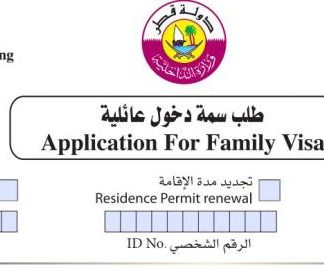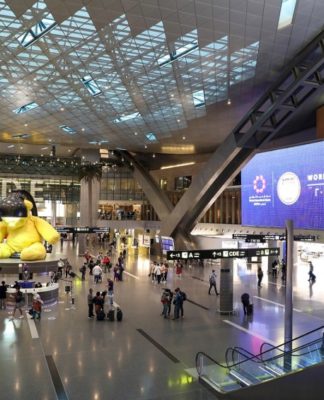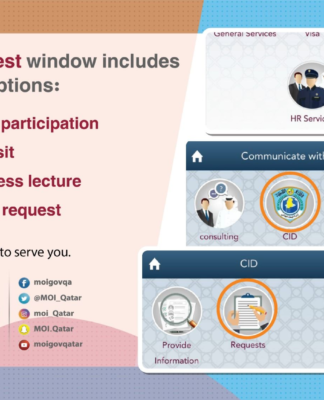Lifestyle /
Travel & Leisure
Malaysia’s new digital nomad visa aims to make it Southeast Asia’s remote work hub, but competition from Bali is fierce
Opening to applicants on October 1, the De Rantau Programme is a ‘digital nomad pass’ that is cheap, with only a few qualifying criteria for a 12-month stay
The visa is intended to make Malaysia the first choice for professionals working remotely in the region, but knocking Bali off its perch may prove difficult
Marco Ferrarese
Marco Ferrarese
+ FOLLOW
Published: 5:15am, 21 Sep, 2022
Why you can trust SCMP
TOP PICKS
News
Beijing backs Hong Kong leader’s changes to Covid-19 travel rules
21 Sep 2022
Hong Kong has mostly been closed off to the world for more than two years. Photo: K. Y. Cheng
Lifestyle
We’re in love with the exercise dress, as worn by Emma Raducanu, once again
19 Sep 2022
More people are wearing exercise dresses, like the one Emma Raducanu wore during her Wimbledon matches in London this year, than ever before. Photo: AFP
Lifestyle
Big Mouth: so many plot holes in K-drama it’s like Swiss cheese
19 Sep 2022
Lee Jong-suk plays Park Chang-ho, a lawyer turned master criminal, in a still from Disney+ Korean drama series Big Mouth.
Lifestyle
Samsung Galaxy Z Flip 4 vs Motorola Razr: flip phone showdown
19 Sep 2022
Motorola’s Razr 2022 (right) and Samsung’s Galaxy Z Flip 4. While the Razr’s cover display is bigger and more functional, the Flip 4 is the all-round better buy for its superior camera, UI and hinge. Photo: Ben Sin
Lifestyle
Macron’s sneakers kick up a storm online: too casual to pay respects to Queen?
20 Sep 2022
French President Emmanuel Macron (centre left) and his wife Brigitte Macron arrive at Westminster Hall to pay their respects to Britain’s late Queen Elizabeth II. Photo: EPA-EFE/Olivier Hoslet
Lifestyle
Move over, Oatly, there’s a new milk alternative on the block. Meet Oatside
20 Sep 2022
New alternative milk drink Oatside tastes like Horlicks, Ovaltine and Milo, says the brand’s founder, Singaporean Benedict Lim. He’s counting on that to appeal to Asian consumers. Photo: Oatside
Lifestyle
Black veils, cancelled parties: how London Fashion Week mourned the queen
20 Sep 2022
A spring/summer 2023 by Erdem. The start of London Fashion Week coincided with the death of Queen Elizabeth, but while tribute was paid the event carried on regardless.
Lifestyle
40 years of emojis – how did they start, and what does the future hold?
19 Sep 2022
Scott Fahlman invented the emoji on September 19, 1982 at Carnegie Mellon University. The pictographs have since become become an essential communication tool. Photo: Scott Fahlman
News
What are China’s theatre commands and service branches?
15 Aug 2021
China’s People’s Liberation Army is the world’s largest military force. Photo: Xinhua
News
US vs China: who has the stronger military?
16 Jul 2021
China has the world’s largest military by active personnel. Photo: STR/AFP
Post
Remote work from abroad is becoming increasingly common among professionals. Through its new visa, Malaysia wants to become Southeast Asia’s latest digital nomad hotspot. Photo: Shutterstock
Remote work from abroad is becoming increasingly common among professionals. Through its new visa, Malaysia wants to become Southeast Asia’s latest digital nomad hotspot. Photo: Shutterstock
Without much fanfare, Malaysia has rolled out a visa programme that may become the first fully fledged digital nomad and remote worker pass to be offered in Southeast Asia.
According to a Migration Policy Institute report, at least 25 countries around the world now offer visas tailored for remote workers, but Asia has been slow to respond to the trend.
Supported by the Malaysia Digital Economy Corporation (MDEC) – a government agency tasked with promoting the country’s digital economy – the De Rantau Programme will open to applicants on October 1.
It has the aim of “establishing Malaysia as the preferred digital nomad hub in ASEAN [Association of Southeast Asian Nations] while boosting digital adoption and promoting digital professional mobility and tourism across the country,” according to the programme’s website.
With a processing fee of 1,000 ringgit (US$220), the programme welcomes digital marketers and developers, content creators, and IT professionals from all over the world, providing a proper “digital nomad pass” valid for up to 12 months with which to breeze through immigration.
The De Rantau Programme is intended to attract digital marketers and developers, content creators, and IT professionals. Photo: Getty Images
The De Rantau Programme is intended to attract digital marketers and developers, content creators, and IT professionals. Photo: Getty Images
Applicants will require a minimum yearly income of US$24,000 and proof of an active three-month work contract with a foreign or Malaysian company. Multiple shorter contracts would count towards the minimum requirement.
Dependents such as spouses and children can be added to the application at a yearly cost of 500 ringgit per person. The pass will also be renewable for a further year.
Indonesia woos digital nomads with 5-year remote working visa
6 Jun 2022
“Several years back, MDEC introduced the Tech Entrepreneur programme, which was unique because it encouraged those who wanted to set up a tech business in Malaysia to come freely,” says Sam Choong, a Malaysian lawyer who advises on immigration issues.
Choong considers the new visa a breath of fresh air in contrast to the Malaysia My Second Home (MM2H) programme. Primarily aimed at foreign retirees, over the past year, MM2H has lost its lustre due to a sharp increase in its financial requirements. A meagre 267 new applications were made in that period.
EVERY SATURDAY
A weekly curated round-up of social, political and economic stories from China and how they impact the world.
GET THE NEWSLETTER
By registering, you agree to our T&C and Privacy Policy
“I am pleased that MDEC developed a new programme to attract a younger group from the tech world who may not necessarily want to start their own company in Malaysia and who may wish to stay for a shorter period as compared to the Tech Entrepreneur programme,” says Choong.
Bali has been a firm favourite for remote workers through the pandemic, and will be Malaysia’s fiercest competition in its bid to become Southeast Asia’s digital nomad hotspot. Photo: Shutterstock
Bali has been a firm favourite for remote workers through the pandemic, and will be Malaysia’s fiercest competition in its bid to become Southeast Asia’s digital nomad hotspot. Photo: Shutterstock
The De Rantau programme will assist the tourism industry by certifying accommodation providers as digital-nomad-ready hubs equipped with fibre internet connections and co-working facilities.
Local digital freelancers, independent contractors and freelance workers will be encouraged to join and help populate the hubs identified by the De Rantau programme.
Malaysia fiercest competition in attracting digital nomads comes from neighbouring Indonesia, where Bali has established itself as an international remote worker magnet. Canggu, on the island’s southwestern coast, maintained a sizeable population of foreign remote workers even during Covid-19-induced border closures.
In this era of digital-nomad visas, how to define exactly what ‘work’ is?
24 Jun 2022
They arrived to enjoy Bali’s more relaxed social distancing protocols and stayed for the bars, co-working spaces, hostels and villas that were only too happy to support the island’s starved tourism industry by catering to their needs.
The steep increase in itinerant worldly professionals triggered a need for proper immigration regulations. Indonesia touted a five-year digital nomad visa but, thus far, the most concrete step towards such an arrangement was last week’s announcement that digital nomads may work online for up to six months, tax-free, using the existing Single Entry Visitor Visa (B211A).
That permit allows stays of between 60 and 180 days for the purposes of tourism, social visits, business, sport or transit. Those who want to stay longer often apply for the KITAS (Kartu Izin Tinggal Terbatas), an Indonesian long-term stay permit for foreign nationals.
Island paradise? How building is raging out of control on Bali’s west coast
4 Jun 2022
“KITAS holders can stay up to two years, entering and exiting as they please, for about US$1,200,” says Giovanni Belcastro, an Italian who moved to Bali during the darkest days of the pandemic and stayed.
“Then there’s a much cheaper business visa, at around US$200, which is what most digital nomads in Bali have been using until now. It can be extended for up to six months without leaving the country.”
CONVERSATIONS
Marco Ferrarese
Marco Ferrarese
+ FOLLOW
Marco Ferrarese has covered Malaysia, the rest of Southeast Asia and India from his base in Penang since 2009. He holds a PhD in subcultural anthropology and his debut novel Nazi Goreng, a quirky subcultural thriller set in Penang, was published by Monsoon Books in 2013 and banned by Malaysia’s Ministry of Home Affairs in 2016.
















![List Of Profession Eligible For Family Visa In #Qatar2022 [Salary Occupations]](https://welcomeqatar.com/wp-content/uploads/2022/07/maxresdefault-1-324x400.jpg)








